Five SEO Excuses
29 Aug 2006Russell Jones, CTO of SEO firm Virante, has found an original way of showing off his SEO skills: he created a top 5 of SEO excuses, and made sure they listed #1 to #5 for the Google query “five seo excuses“.
Russell Jones, CTO of SEO firm Virante, has found an original way of showing off his SEO skills: he created a top 5 of SEO excuses, and made sure they listed #1 to #5 for the Google query “five seo excuses“.
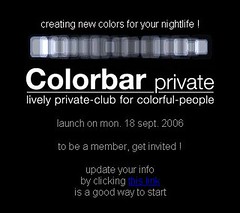 In the last three days I have received 3 mails from Colorbar, a “lively private club for colorful people”. The first one didn’t trigger my suspicion, since I am subscribed to some music-related mailing lists. The two next mails came for 2 @forret.com aliases of which I am certain they never subscribed to any list. So I took a closer look at the email. No contact details are given, no indication of where the email addresses came from, no possibility to unsubscribe, i.e. it’s a spam mail. To be even more specific: a belgian spam message.
In the last three days I have received 3 mails from Colorbar, a “lively private club for colorful people”. The first one didn’t trigger my suspicion, since I am subscribed to some music-related mailing lists. The two next mails came for 2 @forret.com aliases of which I am certain they never subscribed to any list. So I took a closer look at the email. No contact details are given, no indication of where the email addresses came from, no possibility to unsubscribe, i.e. it’s a spam mail. To be even more specific: a belgian spam message.
I have been looking for a way to write down tango steps since I began dancing. I experimented with drawing arrows, writing full text, abbreviations, inventing signs, … I’m not alone in this quest:
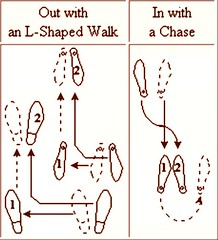 or
or 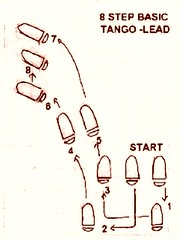
I’ve started a public Google calendar for tango events (milonga’s, salons) in and around Brussels. My preferred site, milonga.be has gone down, the agenda at tango.be is quite ugly (it uses frames *shiver* ), and Marisa & Oliver’s agenda cannot be exported. So I made my own:
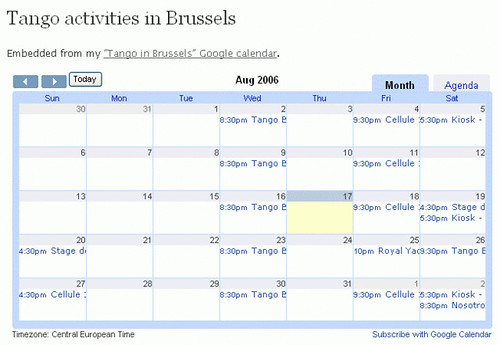
Just a thought I had:
if the “rule of thirds” is so effective for photo composition, could it also be used to create more pleasing Powerpoint presentation designs?
An example of the layout dimensions could be like this (don’t focus on the boring picture/font, just the relative placement):
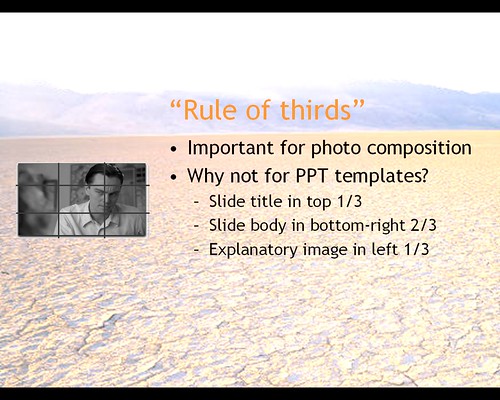
I had an interesting discussion some days ago: will the iPods move to more storage (e.g. the Terabyte iPod) or more bandwidth (Bluetooth, EDGE, Wifi). Let me sketch what those two scenarios for the future iPod look like: